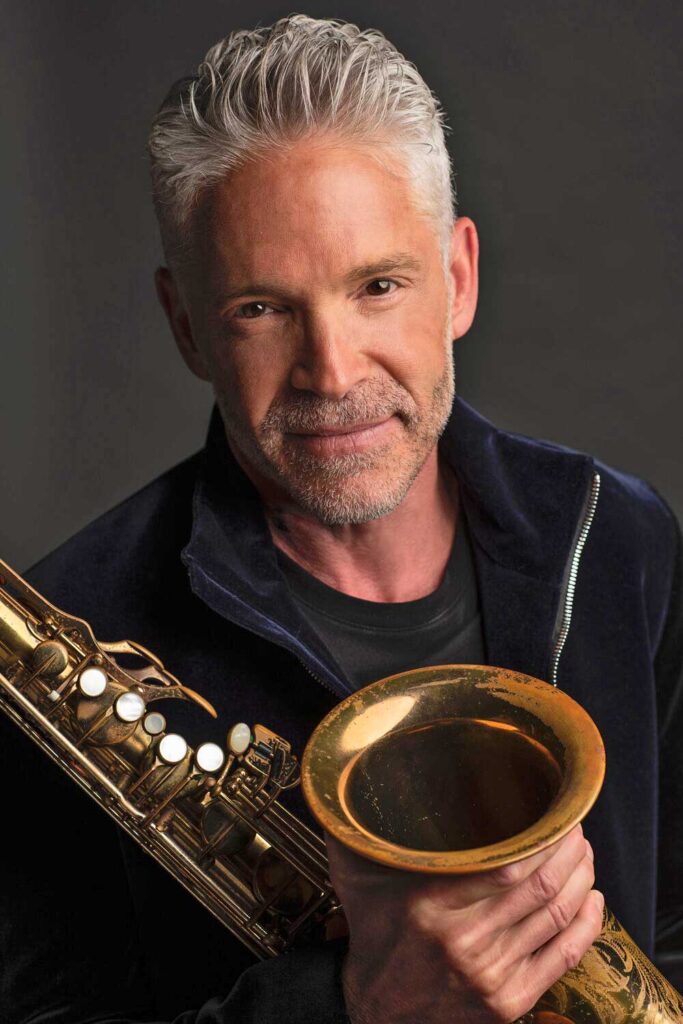Proving to not be a typical year for Pride celebrations, with rescheduling a common occurrence, 2021 is not your typical year for LGBTQ+ music either. The abundance of releases by artists from our community has reached a fever pitch.
At the end of her incredible life, cut short at 49 in 1997, Laura Nyro’s fans got a couple of surprises. The first was that she had ovarian cancer, which was the cause of her sudden passing. The other was that she was bisexual and had been in a relationship with a woman for several years. It’s possible that her queer fans could sense that, which would go a long way in explaining her sizable following in the community.

Like lesbian singer/songwriter Janis Ian, Nyro recorded her first album when she was still in her teens. Also like Ian, she was signed to Columbia Records for a number of years. Unlike her previous albums, the rare and recently reissued Trees of the Ages: Laura Nyro Live in Japan (Omnivore) was initially only released in Japan. The first 16 tracks were recorded in 1994 in Osaka at Kintetsu Hall, while the remaining five songs were recorded live at On Air West in Shibuya, also in the same year. The songs are a mix of covers (“Walk on By,” “Let It Be Me”), her classics (“Save The Country,” “Wedding Bell Blues,” “And When I Die”), as well as later songs (such as “Louise’s Church,” which includes a mention of Sappho!).
Another music legend from the past, Marianne Faithfull, wrote openly about her bisexuality in her 1994 memoir Faithfull. The singer, best known for hits including “As Tears Go By” and “The Ballad of Lucy Jordan,” continues making music to the present day, and recovered from Coronavirus after almost a month in the hospital in 2020. She Walks in Beauty (Panta Rei/BMG), Faithfull’s new album, is considerably different from her others. First, it’s a collaboration with Australian musician Warren Ellis, known for his work with Nick Cave and the Bad Seed and other bands. The other thing that separates this project from earlier Faithfull releases is that she doesn’t sing on the album, but rather recites poems by John Keats, Lord Byron and Percy Bysshe Shelley, among others.

The Golden Hour (Just Koz Entertainment), the new album by gay smooth jazz sax player Dave Koz, is also a collaboration. Koz teamed up with guitarist/bass and keyboard player Cory Wong for the 11 tracks, co-written by Koz and Wong. Koz has come to be known as an excellent collaborator (see his annual Summer Horns and Christmas concert tours as prime examples). The Golden Hour radiates with exciting musical experiences, including the funky and rocking “Getaway Car” and “Junkyard Dunebuggy,” the warm title cut, the slinky “Little Rascals,” the hot “Engine 71,” and the emotion-laden “Gratitude.”
Easily one of the most unforgettable debut albums of the year, Bones (Mack Avenue/Artistry Music) by queer vocalist/instrumentalist/songwriter Michael Mayo is an exceptional achievement. Reminiscent of serpentwithfeet’s equally incredible 2021 album Deacon, Bones introduces us to another out and proud Black artist and his prodigious talents. As experimental as they are accessible, Mayo’s compositions flirt with jazz, modern soul and pop, and never fail to keep us mesmerized. Outstanding numbers include “Stolen Moments,” “You and You,” “Silver and Gold,” “20/20,” “Hold On,” and “What’s My Name.”

The aptly named Home Movies (Matador), the third album by queer singer/songwriter Lucy Dacus is as personal as the title suggests. Frank and forthcoming, Dacus comes fully into focus on Home Movies, beginning with “Hot & Heavy,” and continuing with the raw honesty of “Christine.” The modern-rocking “First Time” kicks it up a notch, while the difficult “VBS,” brings to mind the work of Becca Mancari, whose similar stifling religious upbringing is yet another strong argument for atheism. Dacus strikes a balance between gorgeous musical arrangements (“Thumbs,” “Going Going Gone,” “Please Stay,” “Cartwheel”) which softens the blow of some of the subject matter, and thrilling rhythmic tunes (“Brando,” “Triple Dog Dare,” and “Partner In Crime”). Highly recommended!
Beginning with “No Man,” which can best be described as a 21st century, queer, feminist rewrite of the Beatles’ “Come Together,” complete with a “disease” and “please” rhyme, Emily Wolfe makes an impression as lasting as the tattoo ink on her arms. Everything that follows on her blistering second album Outlier (Crows Feet) lives up to the promise of the opening track, particularly “LA/NY,” “Damage Control,” “Vermillion Park,” “My Lungs Give Out,” and lush album closer “Heavenly Hell.”From its title, Bristol County Tides (anniekeating.com), and its country-blues opener “Third Street,” you might think queer singer/songwriter Annie Keating is from somewhere in the heart of the south. The truth is that Bristol County, where Keating and her family sought shelter during the pandemic, is in Southeastern Massachusetts. For Brooklyn-based Keating, geographic rules don’t really apply. When it comes to the 15 songs on Bristol County Tides, one thing’s for sure, Keating owes a debt to Mary Gauthier, another musician with a connection to the Commonwealth of Massachusetts. This rings true on several of the songs, including “Blue Moon Tide,” “Marigold,” “Hank’s Saloon,” “Kindness,” “Bittersweet” and “Goodbye.”
